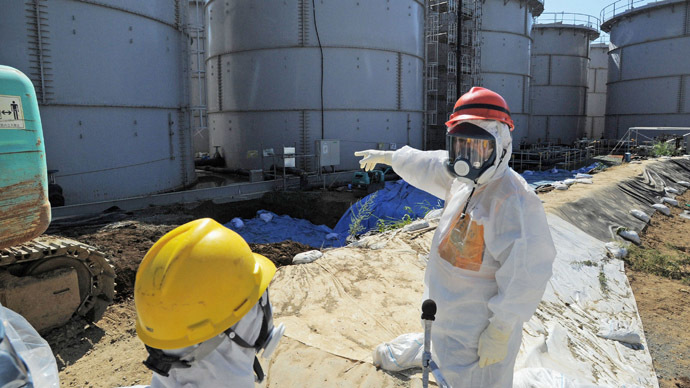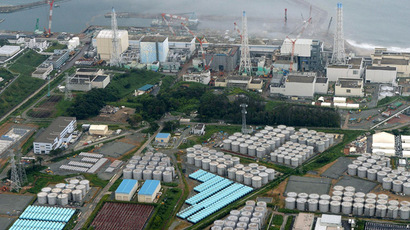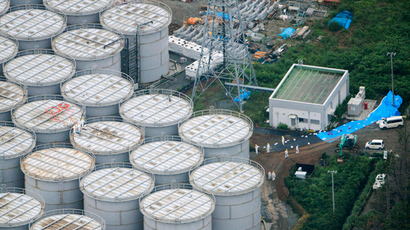New radioactive hotspots suggest more leaks at Fukushima

Several new hotspots reading potentially lethal doses of radiation have been detected near the tanks storing the radioactive water, forcing the operator to admit there might be even more leaks at the crippled Fukushima nuclear power plant.
Follow RT's LIVE UPDATES on the Fukushima leak
emergency
The high radiation readings were detected during the daily
inspection on Saturday near three water tanks and one pipe
stretched between the tanks and the plant, Kyodo news agency
reported.
Traces of water leak measuring 230 millisieverts per hour were
found below the pipe, the agency added. Meanwhile, Jiji news
reported a reading of 1,800 millisieverts per hour was near one
of the tanks, while the other reported readings measured between
70 and 230 millisieverts.
Tokyo Electric Power Co has admitted the peaking radiation
readings, but claimed that none of the containers showed any
visible fall in their water levels, according to a statement
cited in Japanese media.
Just last week the plant operator disclosed that at least one of
the 1,060 temporary tanks used to store highly contaminated water
sprang a leak discharging as much as 300 tons of radioactive
liquid containing large amounts of cesium.

Following the incident Japan’s
Nuclear Regulation Authority raised the rating of the water leak
to Level 3 – a "serious incident" on an international scale of
radioactivity from the previously assigned Level 1, an
“anomaly.”
The International Atomic Energy Agency lashed out at TEPCO for
ignoring their calls for stepping up patrolling efforts at the
plant, accusing TEPCO of being slow in measuring the levels of
radioactive elements that have flowed out of the station, as well
as publishing its data.
“Unfortunately, TEPCO waited until a severe emergency arose to
finally report how bad things really are,” nuclear accident
researcher Christina Consolo told RT earlier. “Historically,
everything TEPCO says always turns out to be much worse than they
initially admit.”
While Japanese government promised it would supervise the
clean-up at the plant from then on, most experts say that it
could still take between four decades and a century to eliminate
the impact of the Fukushima disaster.
Dr. Robert Jacobs from the Hiroshima Peace Institute told RT that in Japan most people think the situation at Fukushima is “out of control”.
He also warned that should another natural disaster, such as another serious earthquake, occur then the situation would be catastrophic.
“There tanks are being put up in an ad hoc manner. Were there to be another serious earthquake you, have all these tanks with massive amounts of contaminated water,” he told RT.














